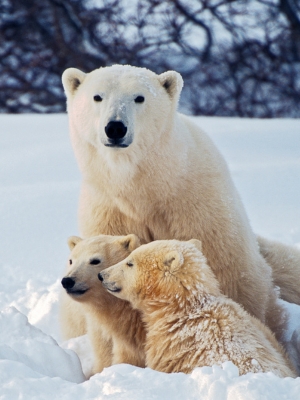Last winter, I donned my artist’s hat and began a painting of two species of animal found only in eastern Australia; one increasingly rare and internationally beloved – the koala – and the other common there but not so well known outside of Australia, and less beloved, because of its aggressive (and loud) nature against other songbirds. It’s called the noisy miner.
Why? Art for me is mental therapy, a reliever of stress, a way of escaping negativity and coping with the darker side of reality. And, what was stressing me last winter was the continual news and photos from Australia about the savage fires that were destroying so much of the environment, harming humans and wildlife, on the opposite side of the planet.
But, what now? Now that it is spring down there, we are seeing the harvest of a summer of hot, dry weather on an area not so far away, and unlike Australia, frequently visited and very familiar to me: California. As Australians prepare for their summer we can only hope for a dying of winds and a falling of winter rains as I nightly see on my television screen images of red skies and blazing trees up and down the American west coast. I lived there once, as a child, and I spent months out of each year there as an adult, and I wonder now, not about koalas and cockatoos of Australia, but the California scrub jays and spotted owls and so much else fondly remembered from places now aflame, as I hear the names of towns I have visited, locations I know, turned to ash.
And, before then I was frustrated, too, by the closing of our shared border at a time when I thought I might, for the first time in decades, take an actual vacation and visit a region I so love, the American southwest. All previous visits were tied to professional duties, or brief working holidays tacked onto business trips; time to self-indulge and just enjoy the scenery and wildlife. The pandemic put a stop to that idea.
I won’t complain because I’m lucky to live where infection rates are low and the skies are blessedly clear of sparks – the sky a robin’s egg blue as I type. But, it all seems so unnecessary because we have been warned, going back decades. While any one person can be ignorant of basic ecological and geophysical principles, what of the decision makers? Why are so many national leaders so unaware of what has been known for so long by so many? Both climate change and a pandemic were predicted, along with much else, by the people who study such things.
I thought of that in the context of what is happening locally where I live, the opening of a devastating hunting season on double-crested cormorants, an act that required changing the law to allow what is being called “game” to rot, in utter violation of all hunting ethics to utilize the game that is killed. It, too, stems from utterly ignoring the science from ignorance.
It is a special kind of ignorance that derives from what I call ecological, or biological, zoological, or geological – in short from scientific – illiteracy. And, that concern helps to provide the answer to a question I, as a conservationist, am sometimes asked in various ways: why do my colleagues and I spend so much time trying to protect common species, like deer, snow geese, badgers, beavers, coyotes – the list is endless – from culling, when there is a growing list of critically endangered species?
One simple explanation is that in the majority of such cases, culling derives from scientific illiteracy. It comes from a lack of knowledge of ecology, sadly at times from within the ranks of the conservation movement itself. I just heard of a renewal of the horrific culling of badgers in the U.K., in defiance of all
scientific reasoning. It’s a sop to what I suspect the government deems to be the greater number of voters who don’t know that all evidence is that killing badgers won’t achieve the declared objective of protecting cattle from bovine tuberculosis. Yet again, as so often happens, a government’s own scientists have argued against a cull, just as has happened here in Ontario regarding cormorants.
I get that political leaders devote so much time in the job of becoming political leaders that they have little time to learn facts, but what really drives them is the opinion of voters, and we, too, are often just too ignorant, too willing to accept what we are told and not learn how the world works.
So what we, in the animal protection, environmental, and health communities really work toward is a better understanding of the non-human world; the world that not only led to us but upon which we ultimately depend for our own survival. Knowledge is key. Also essential to our survival is, I firmly believe, compassion – an understanding that species differ, but not in terms of their ability to fear and to suffer. Suffering and death are inevitable for any sentient being, yes, but being the cause of such is not only usually avoidable, but ultimately essential if we are to survive the multiple risks of climate change, desertification, pandemics, nuclear or biochemical war, toxification, and mass extermination. Cruelty and ignorance are the enemy of our ability to simply be able to enjoy the act of living in a world growing ever more perilous to us all.
Keep Wildlife in the Wild,
Barry

 Dear Reader,
Dear Reader,